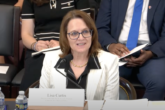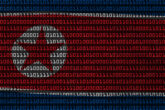October 10, 2018
How to Tell When North Korea Starts to Denuclearize
On Monday, Secretary of State Mike Pompeo returned from what he described as “productive” conversations with North Korea’s leader, Kim Jong Un. Although details are still emerging from the meeting, which took place in Pyongyang, one outcome is clear: Both sides are eager to push forward with a second summit between President Donald Trump and Kim as soon as possible.
But the question of denuclearization still hangs over these negotiations. Despite North Korea’s consistent assertion that it will not disarm “unilaterally” and that Washington must remove sanctions against the country, the leaders of the United States and South Korea seem convinced that it is finally serious about giving up its nuclear arsenal. President Trump has repeatedly defended Kim as an “honorable” man committed to denuclearization. After three meetings with Kim, South Korean President Moon Jae In seems even more convinced that Kim—unlike his father and grandfather—is serious.
Most North Korea and nuclear experts—the authors of this article, included—doubt that Kim has decided to abandon his nuclear-weapons program. North Korea has an established pattern of dragging out negotiations and breaking its commitments. In addition, the baseline conditions necessary for Kim to make such a strategic change appear to be absent.
For example, Kim would need assurances that whatever concessions the Trump administration provides— such as a peace declaration leading to a peace treaty or the reduction or removal of U.S. troops on the Korean peninsula—are permanent and legally binding. He also likely needs to believe that Seoul is committed to a foreign policy untethered to U.S. preferences, and that North Korea’s nuclear-weapons program—upon which he has staked his legitimacy and power, and his country’s security and prosperity—is a greater threat to these goals than an asset. On top of all this, he would almost certainly have to be convinced that he would not suffer the fate of Muammar Qaddafi and Saddam Hussein, key examples the regime brings up to assert its nuclear-weapons status.
Even the steps North Korea has taken to date, which include reportedly destroying a nuclear-weapons test site and dismantling a missile-test facility, are either reversible or have little to no technical impact, given the advanced state of its nuclear and missile programs. In essence, they are low-to-no-cost moves for Pyongyang.
Read the full article at The Atlantic.
More from CNAS
-
Assessing the Terror Threat Landscape in South and Central Asia and Examining Opportunities for Cooperation
Watch...
By Lisa Curtis
-
Indo-Pacific Security / Energy, Economics & Security
What Will North Korean Cybercrime Look Like in 2022?North Korean hackers will likely continue to employ more phishing campaigns in the future while tailoring their level of obfuscation based on the target’s sophistication....
By Jason Bartlett
-
Duyeon Kim testifies before European Parliament's Committee on Foreign Affairs
Chairman McAllister, Vice Chairs, DKOR Chairman Mandl, and distinguished Members of the Committee on Foreign Affairs and the European Parliament, thank you for the opportunity...
By Dr. Duyeon Kim
-
China’s New Land Borders Law Is a Nightmare for North Korean Refugees
A combination of high-level pressure from foreign governments and steady support for grassroots refugee resettlement organizations and programs is the most practical way to as...
By Jason Bartlett


